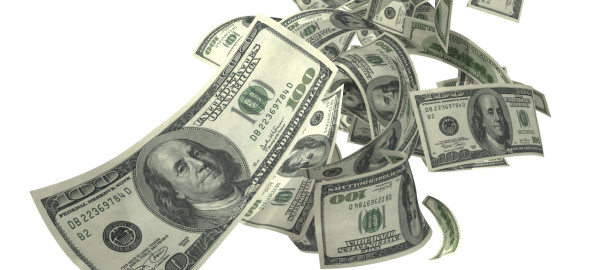Do You Know Where Your Money Is Going?
By Paul Esajian on October 16, 2013
It is impossible to know where you can save money if you don’t even know where it is going. One of the ways that investors, old and new, get themselves in trouble is by neglecting to document where every dollar is being spent. If you do this long enough, you will know which areas require the most attention and which have the potential for significant savings. You do not need a complicated program on your phone tracking your expenses, but you should have some system in place that monitors the flow of money. Knowing where your money is being allocated will allow you to make your business more efficient.
Do you know how much you spend every month on your household cable bill? How about your monthly electric bill? You probably have a firm grasp on the bills your own household generates. Perhaps even more importantly, however, is placing the same attention on your business expenses. A lot of investors make profits on deals, but are left wondering where the money is going. There are a lot of hidden expenses that eat up profits every month, especially with a rental property or rehabs. Start getting into the habit of saving all of your receipts and tracking every dollar spent. Doing so will reveal any unnecessary expenses that eat away at your bottom line.
If you start saving receipts or documenting every rental property expense, you will find that the little things add up. The quarterly water bill may not be $100, but over the course of the year it can add up. This is in addition to other expenses that may include: seasonal maintenance, snow removal, lawn care and other projects that require regular attention. This is before any real expenses, vacancy factors, transportation and repair budgets are added up. All of your expenses can make a big difference in your bottom line. Make sure you know where your money is going, as to cutback on unnecessary expenditures.
The same idea should be applied to your rehab budgets. Going a few dollars over on materials or adding $100 for paint may not immediately hit your wallet, but if you do this over the course of an entire rehab, it will be reflected in your bottom line. Using credit can give you a real idea of all the expenses you fork over money for. From coffee to every item at Home Depot, use that card as often as possible. When the statement comes, take time to review it and look at what was justified and what can be eliminated. If your expense helped you make money, than it is a good expense. however, if it added no value, it has to be looked at as a waste of money.
Once you have collected data on a few properties, saving will become second nature. This does not mean you have to be cheap, but you should know where your money is going. Saving $1000 on six properties a year could result in a new roof down the road. If you save $100 here and $100 there, soon enough it will add up. You will never know where and how to save unless you know where you are spending your money. This is your business and tracking expenses should be a big part of it.